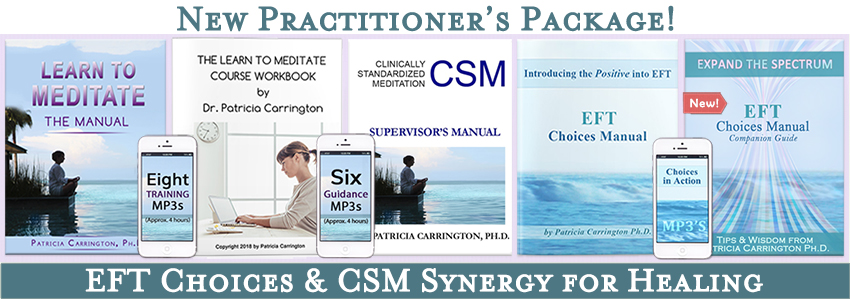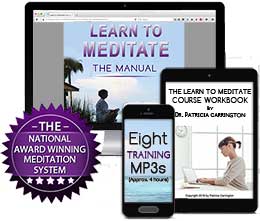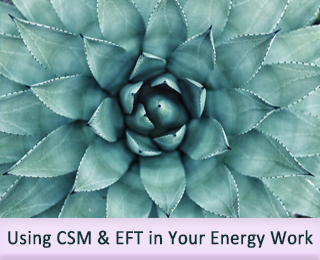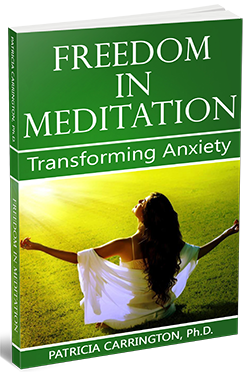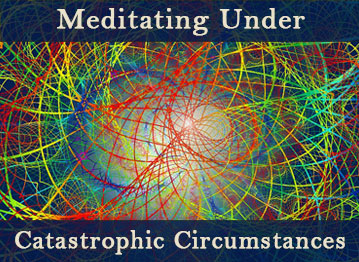 During times of mass chaos and catastrophe, human tension and stress levels can soar.
During times of mass chaos and catastrophe, human tension and stress levels can soar.
Taking the Charge Off Negative Emotions
Meditation may act much like an electrical demagnetizing circuit. When audio/video cassette tapes and computer hard drives, are demagnetized, the electrical (energetic) charge is removed and wiped clean or “neutralized.” It is quite possible that the thoughts and feelings which trouble us are similarly neutralized by the process of meditating.
Psychologists know that if a person is asked to recall distressing thoughts, especially fears, while at the same time being in a state of deep relaxation, the fears will lose their hold and thoughts about them will become converted into objective and relatively non-emotional concerns.
It is nearly impossible for a person to be acutely anxious and at the same time deeply relaxed. If we deliberately couple relaxation with distressing thoughts, we can, therefore, bring about a sharp change in our reaction to those thoughts and often the change may be more or less permanent in its effect.
The process by which this is done in therapy is known as ‘systematic desensitization’ and is usually accomplished in small increments, which may take many sessions to complete, but it can overcome deep-seated fears and phobias in some people.
However, psychologist Daniel Goleman suggested that meditation may be a highly effective desensitization process that works much the same way as systematic desensitization, except that it is much wider in its scope and under complete control of the meditator – no therapist is needed for it to work. 1
He called this process ‘global desensitization’ to indicate its all-inclusive nature. Dr. Goleman also noted that when distressing thoughts and images float unbidden through the mind of a meditator, they typically occur in the deeply relaxed meditative state, and he suggested that this natural linking of distressing thoughts with deep physical calm makes the disturbing thoughts lose their emotional charge.
To those who work with meditation, professionally, this concept feels very ‘right’ because it is supported by their observations. Mediators often reported that, in a particular, meditation session thoughts of a disturbing nature had passed through their minds, sometimes with great vividness, but that somehow the meditators were able to remain calm despite the unpleasantness of these thoughts.
After such a session the disturbing thoughts or fears seemed no longer to ‘bother them’ the same way. Something had happened. Meditation may well have acted to desensitize the individuals who reported such experiences. (And brought upon them a sense of calm)
Using Mini-Meditations under Dire Stress
Meditations under highly stressful circumstances are usually mini-meditations, which are very brief meditations. These meditative experiences could be no more than a minute or two in length.
Understandably, the nature of a threatening situation demands that we keep our attention focused on the external world, which means that deep and prolonged meditation is certainly out of the question. When we feel ourselves facing a threat of any kind, we instinctively glance around us and keep a sharp watch over our environment. Closing our eyes when we feel threatened may make us more anxious because it gives us a feeling of being unprotected and vulnerable.
In such situations many meditators will keep their eyes either fully or partially open during a mini-meditation.
Mini-meditations can bring down tension levels on the spot. Momentary rises in tension levels play an important role in bringing about a rise in blood pressure and other emergency responses of the body. While mini-meditations have the advantage of being able to lower tension, so that the tension does not have a chance to build to a peak level. In doing so, there is opportunity to gain a sense of calm and a clearer perspective of the situation at hand.
One of the most important factors about meditation that makes it potentially useful in stressful circumstances is that it does not depend upon any outside person or force. It therefore seems particularly useful for people who face situations where they may be physically or emotionally at the mercy of some uncontrollable external threat. Using meditation strategically under such conditions could not only be an important contribution – it might even be a lifesaving one.
- Freedom in Meditation, Patricia Carrington (1977) pp. 219
(Compiled from content in Dr. Carrington’s Freedom in Meditation book, and the Learn to Meditate Course)
Recommended Articles
3 Tips for Meditating Under Prolonged Stress
Calming Coronavirus Fears and Anxiety with EFT
Abstract chaos lines image by Gerd Altmann from Pixabay (light flare, borders & text were added)



